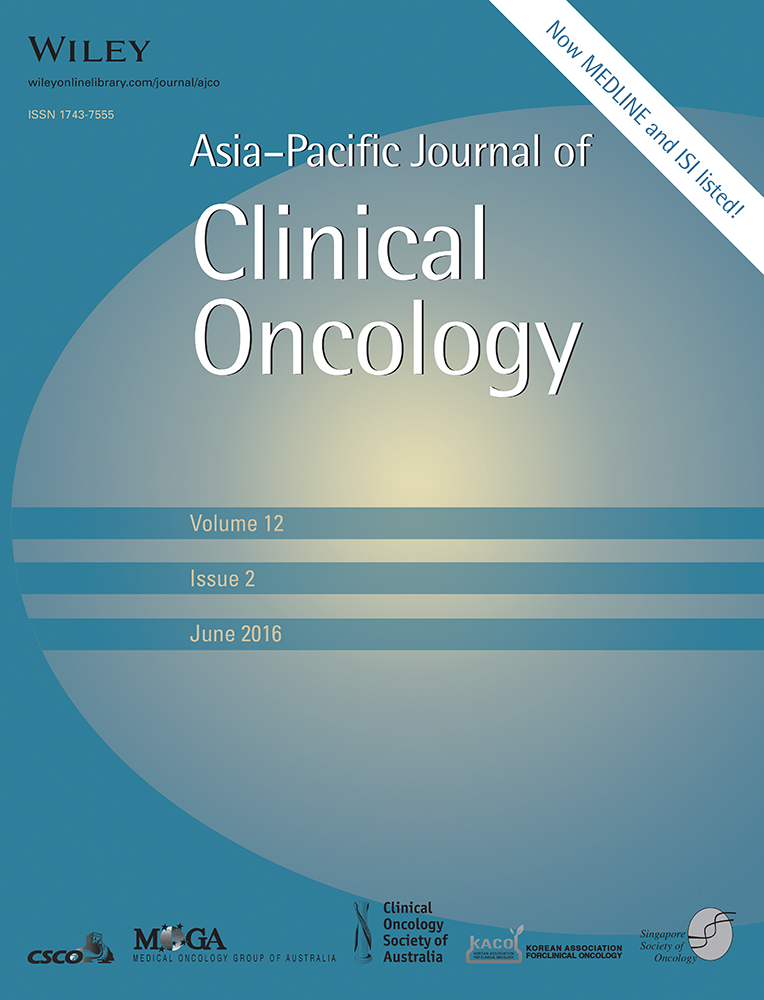HIV and renal cell carcinoma: Experience in an Australian statewide HIV center
Abstract
Aim
To report on the presentation, management and outcomes of renal cell carcinoma (RCC) among people with human immunodeficiency virus (HIV).
Methods
We retrospectively reviewed patients with HIV and RCC in a statewide HIV referral center in Australia. Patients’ medical records were reviewed to collect data on the HIV parameters at the time of RCC diagnosis, as well as presentation, management and outcomes of RCC.
Results
Seven patients with HIV and RCC were included in the current study. The median age at RCC diagnosis was 56 years (range: 44–62 years). At RCC diagnosis, six patients were on combination antiretroviral therapy (ART), and five had virological suppression. Three patients were symptomatic at presentation, while the rest were diagnosed incidentally. Two patients had metastatic RCC at diagnosis. All five patients with clinically localized RCC had radical/partial nephrectomies, of which two patients with pT3a disease developed recurrence (pulmonary and bone) at 5 and 30 months postnephrectomies. One patient with metastatic RCC was treated with vascular endothelial growth factor (VEGF) inhibitors while continuing on ART. Four patients died of RCC at a median of 9 months (range: 4–16 months) following diagnosis of metastatic disease. Three patients were alive at a median follow-up of 16 months (range: 10–80 months).
Conclusion
Our experience suggests that patients with HIV should be offered all treatment options in the same manner as the general population, taking into account their prognosis from HIV. Curative surgery should be considered for localized RCC. Potential drug interactions between ART drugs and targeted therapies for metastatic RCC need to be considered.




